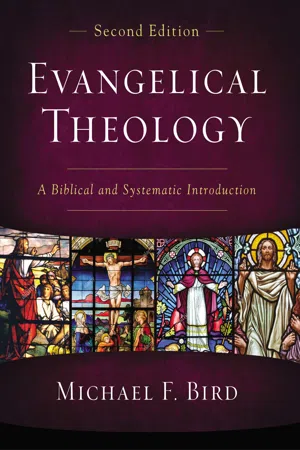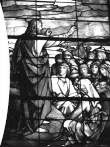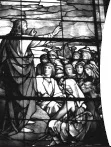
Evangelical Theology, Second Edition
A Biblical and Systematic Introduction
- 960 pages
- English
- ePUB (mobile friendly)
- Available on iOS & Android
About this book
Gospel-Centered Theology for Today
Evangelical Theology, Second Edition helps today's readers understand and practice the doctrines of the Christian faith by presenting a gospel-centered theology that is accessible, rigorous, and balanced. According author Michael Bird the gospel is the fulcrum of Christian doctrine; the gospel is where God meets us and where we introduce the world to God. And as such, an authentically evangelical theology is the working out of the gospel in the various doctrines of Christian theology.
The text helps readers learn the essentials of Christian theology through several key features, including:
- A "What to Take Home" section at end of every part that gives readers a run-down on all the important things they need to know.
- Tables, sidebars, and questions for discussion to help reinforce key ideas and concepts
- A "Comic Belief" section, since reading theology can often be dry and cerebral, so that readers enjoy their learning experience through some theological humor added for good measure.
Now in its second edition, Evangelical Theology has proven itself in classrooms around the world as a resource that helps readers not only understand the vital doctrines of Christian theology but one that shows them how the gospel should shape how they think, pray, preach, teach, and minister in the world.
Frequently asked questions
- Essential is ideal for learners and professionals who enjoy exploring a wide range of subjects. Access the Essential Library with 800,000+ trusted titles and best-sellers across business, personal growth, and the humanities. Includes unlimited reading time and Standard Read Aloud voice.
- Complete: Perfect for advanced learners and researchers needing full, unrestricted access. Unlock 1.4M+ books across hundreds of subjects, including academic and specialized titles. The Complete Plan also includes advanced features like Premium Read Aloud and Research Assistant.
Please note we cannot support devices running on iOS 13 and Android 7 or earlier. Learn more about using the app.
Information

PART ONE
PROLEGOMENA
Beginning to Talk about God
| § 1.1 | What Is Theology? |
| § 1.2 | What Do You Have to Say Before You Say Anything? |
| § 1.3 | What Is the Gospel? |
| § 1.4 | Is Theology Possible? |
| § 1.5 | The Necessity and Goal of Theology |
| § 1.6 | Sources for Theology |
| § 1.7 | Toward a Gospel-Driven Theological Method |
| § 1.8 | A Final Word |
We have been studying cheerfully and seriously. As far as I was concerned it could have continued in that way, and I had already resigned myself to having my grave here by the Rhine! . . . And now the end has come. So listen to my piece of advice: exegesis, exegesis, and yet more exegesis! Keep to the word, to the scripture that has been given to us.1
Where exegesis is not theology, Scripture cannot be the soul of theology, and conversely, where theology is not essentially the interpretation of the Church’s Scripture, such a theology no longer has a foundation.2
An evangelical theology is one which is evoked, governed and judged by the gospel.3
The gospel possesses something distinctive, namely, the coming of the Savior, our Lord Jesus Christ, his suffering, and the resurrection. For the beloved prophets preached in anticipation of him, but the gospel is the imperishable finished work.4
NOTES

§ 1.1 WHAT IS THEOLOGY?
NOTES

§ 1.2 WHAT DO YOU
HAVE TO SAY BEFORE
YOU SAY ANYTHING?
1.2.1 INTRODUCTION TO PROLEGOMENA
1.2.1.1 Definition and Task
1.2.1.2 Prolegomena in Church History
Table of contents
- Cover Page
- Title Page
- Copyright Page
- Dedication
- Contents
- Acknowledgments for the First Edition
- Preface to the Second Edition
- Abbreviations
- Overture: “Without the Gospel” (John Calvin)
- Why an Evangelical Theology?
- Part 1: Prolegomena: Beginning to Talk About God
- Part 2: The God of the Gospel: The Triune God In Being and Action
- Part 3: The Gospel of the Kingdom: The Now and the Not Yet
- Part 4: The Gospel of God’s Son: The Lord Jesus Christ
- Part 5: The Gospel of Salvation
- Part 6: The Promise and Power of the Gospel: The Holy Spirit
- Part 7: The Gospel and Humanity
- Part 8: The Community of the Gospelized
- Scripture and Apocrypha Index
- Subject Index
- Author Index